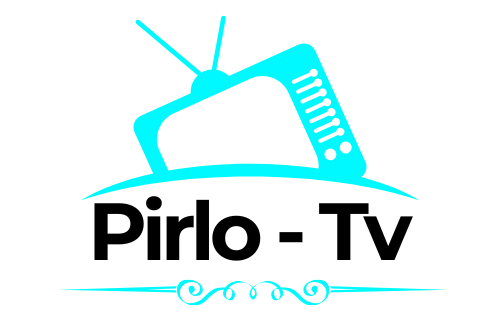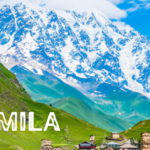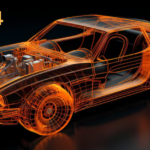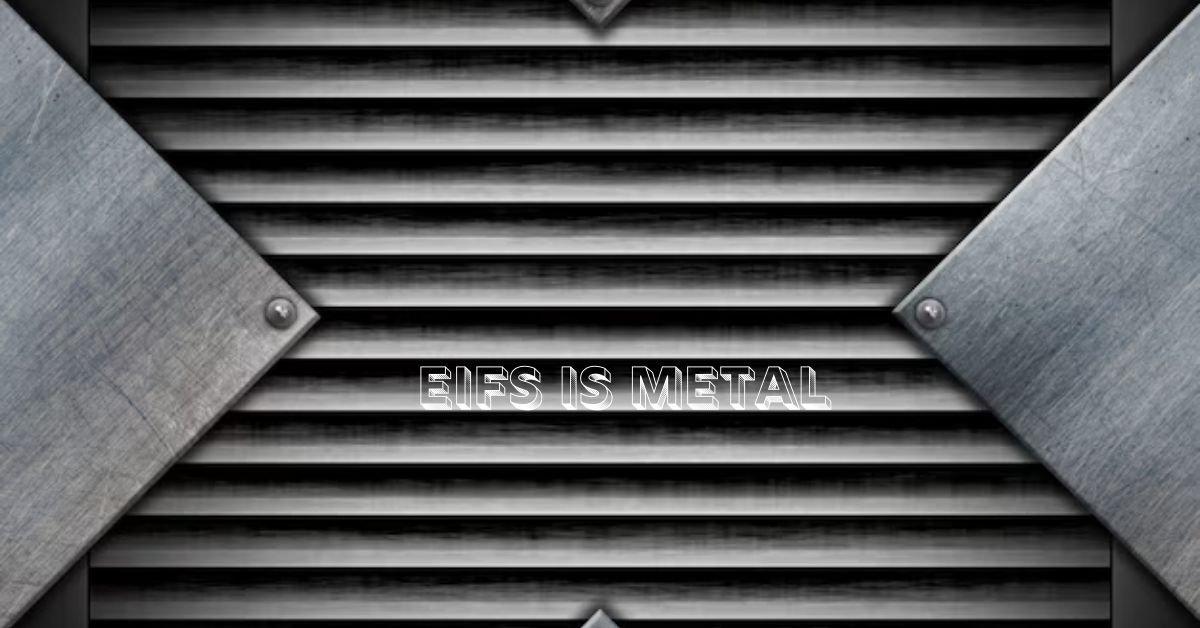Exterior Insulation and Finish Systems (EIFS) have gained immense popularity in modern construction due to their versatile applications and energy-efficient properties. Often linked to the phrase “EIFS is metal,” this system pairs exceptionally well with metal substrates, making it a reliable solution for architects and builders. In this article, we’ll explore the details of EIFS, its compatibility with metal, and its role in creating durable and aesthetically pleasing structures.
What is eifs is metal?
EIFS, or Exterior Insulation and Finish System, is an advanced cladding system that combines insulation, weatherproofing, and design flexibility in a single package. It consists of multiple layers, each serving a specific purpose to ensure the durability and performance of a building’s exterior.
Layers of Eifs is Metal
Insulation Layer: Often made from expanded polystyrene (EPS), this layer provides thermal resistance.
Base Coat: A durable polymer-based layer applied over the insulation to bind it to the reinforcement mesh.
Reinforcement Mesh: Embedded in the base coat, this mesh enhances the strength of the system.
Finish Coat: A customizable, weather-resistant topcoat that offers various textures and colors.
The Connection Between Eifs’Metal
The phrase “EIFS’metal” signifies the system’s exceptional compatibility with metal substrates. Metal-framed buildings often require external systems that enhance their energy efficiency and aesthetics, and EIFS excels in both areas.
EIFS acts as a protective and insulating layer when applied to metal surfaces. It minimizes the risks associated with thermal bridging—a common issue in metal structures where heat escapes through the framework.
Benefits of Using Eifs’Metal Structures
Energy Efficiency
EIFS is renowned for its insulating properties, which reduce energy consumption in buildings. Metal, being a conductive material, tends to allow heat to pass through easily. By applying EIFS, this problem is mitigated, resulting in lower heating and cooling costs.
Moisture Resistance
Metal buildings are vulnerable to water damage and corrosion when exposed to prolonged moisture. EIFS systems often include moisture drainage features that protect the underlying metal, extending the structure’s lifespan.
Enhanced Aesthetics
EIFS offers a wide range of finishes that can mimic metal, stone, or other textures. This versatility allows architects to achieve their desired look while retaining the structural benefits of metal substrates.
Lightweight Design
Metal frameworks benefit from the lightweight nature of EIFS, which doesn’t add excessive load to the structure. This is particularly important in areas prone to seismic activity, where reducing weight can improve a building’s resilience.
Cost-Effectiveness
The combination of energy savings, durability, and low maintenance costs makes EIFS an economical choice for builders and property owners. Over time, the savings on energy bills often outweigh the initial installation costs.
Applications of Eifs’Metal-Based Construction
Commercial Buildings
Metal-framed commercial buildings, such as office complexes and retail spaces, frequently use EIFS to enhance their exterior. The system not only boosts curb appeal but also reduces operational energy costs.
Industrial Facilities
Warehouses and factories often feature large metal surfaces that benefit from the protective and insulating properties of EIFS. It ensures that these facilities remain functional in extreme weather conditions.
Residential Eifs’Metal Projects
Modern residential homes with metal elements in their structure also benefit from EIFS. The system enables unique design possibilities, offering homeowners a chance to customize their exteriors.
Why Architects and Builders Prefer Eifs’Metal
Versatility
One of the primary reasons EIFS is favored by professionals is its adaptability. Whether applied to metal, concrete, or wood, EIFS adheres seamlessly, offering consistent performance across substrates.
Sustainability
EIFS contributes to eco-friendly construction by improving energy efficiency and reducing a building’s carbon footprint. Many manufacturers now offer EIFS products that meet stringent environmental standards.
Ease of Installation
Despite its layered composition, EIFS is relatively easy to install on metal surfaces. This reduces labor costs and speeds up project timelines, making it a preferred option for time-sensitive projects.Common Concerns About EIFS and Metal
Is EIFS Durable on Metal Structures?
Yes, EIFS is highly durable when installed correctly. Its multiple layers provide a robust defense against physical damage, moisture, and temperature fluctuations, making it suitable for metal buildings in diverse climates.
Does EIFS Require Maintenance?
EIFS is low-maintenance compared to traditional cladding systems. Regular inspections and occasional cleaning are usually sufficient to keep it in excellent condition.
Can Eifs’Metal Withstand Harsh Weather?
EIFS is designed to handle extreme weather conditions, including heavy rains, snow, and high winds. Its moisture drainage features and weather-resistant finish coat ensure long-lasting performance.
Tips for Installing EIFS’Metal Substrates
Hire Professionals
Proper installation is critical to ensure the performance of EIFS. Hiring experienced professionals minimizes the risk of errors and guarantees compliance with building codes.
Prepare the Surface
The metal surface should be clean, dry, and free from contaminants before applying EIFS. This ensures a strong bond and prevents issues down the line.
Choose High-Quality Eifs’metal Products
Not all EIFS systems are created equal. Investing in high-quality products from reputable manufacturers ensures better durability and performance.
Conclusion
EIFS is a game-changer for modern construction, particularly for buildings with metal substrates. It offers a perfect blend of aesthetics, durability, and energy efficiency, making it a top choice for architects and builders. Whether you’re designing a commercial complex, industrial facility, or residential home, EIFS provides the versatility and performance needed to meet your goals.
By understanding its features and benefits, you can leverage EIFS to create structures that are not only visually stunning but also built to last.
FAQs
Can EIFS Be Customized to Look Like Metal?
Yes, EIFS can be textured and colored to mimic the appearance of metal or other materials, giving architects the freedom to create unique designs.
Is Eifs’Metal Fire-Resistant?
EIFS systems typically meet fire safety standards and can be customized for additional fire resistance based on project requirements.
How Long Does Eifs’Metal Last on Metal Structures?
When properly maintained, EIFS can last 30 years or more, making it a durable choice for long-term projects.
Does EIFS Add Significant Weight to Metal Frameworks?
No, EIFS is lightweight and designed to complement metal structures without adding excessive load.
Can Eifs’metal Repaired?
Yes, damaged EIFS sections can be repaired without the need for complete system replacement, saving time and money.











